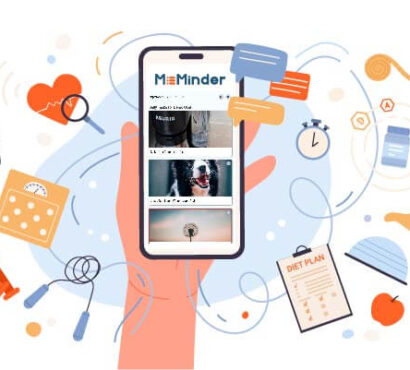(See the article in US News and World Report, October 28, 2018).
Dawn Neumann, PhD, of Indiana University School of Medicine, and the Rehabilitation Hospital of Indiana, has been refining the Emotional Compass for the past four years, as part of her research in helping survivors of traumatic brain injuries (TBI).
Why an Emotional Compass? Emotions are essential to our everyday functioning but must be appropriately managed to achieve successful personal and professional relationships, as well as optimal well-being and quality of life. Fundamental to managing emotions is recognition of their presence (awareness) and the ability to label them (I feel frustrated and sad). Awareness and labeling of our emotions puts us in a better to position to control those emotions. Interestingly, the science suggests that labeling emotions can help minimize an unpleasant emotional response. Without recognition of these emotions, your emotions will control you, instead of the other way around.
Some people need help to better recognize and label their emotions — persons with TBI, autism, schizophrenia, borderline personality disorder, and even some of the general public— just to name a few. In TBI, the prevalence could be as high as 60%. To help people with this need, we created an Emotional Compass to help people navigate their feelings. The Compass systemically guides people through a series of prompts, helping them to hone in on the words that best describe the emotions they are feeling. This Emotional Compass was a key component in a new therapy program we recently studied in people who have had a TBI. In the pilot study, the therapeutic program was 8 one-on-one sessions between a participant and research therapist. The goals of the training were to improve emotional awareness and emotional vocabulary, and the compass was a complementary tool to accomplish this goal. Results from this pilot study were extremely promising, with results showing better emotional control and more positive mood. Some participants even reported a better quality of life as a result of what they learned in the program. This was truly encouraging to see such changes after a relatively short intervention in people who were many years post-TBI, especially since we didn’t even teach them to change their emotions- only identify them. It is very exciting to think of the possible benefits of this tool if it were to be combined with traditional psychotherapy. In fact, it is recommended patients use this tool in conjunction with clinicians in case a professional is needed to provide support as the patients become more aware of their emotions.
Since our pilot study we found that the compass has helped many others, outside the initial target market of TBI. “Anecdotally, I’ve been told the Compass has even helped save a marriage, by helping the couple to identify and communicate their specific feelings.” Unfortunately, after our pilot study, the emotional compass was just a laminated piece of paper for the participant to carry around with them or pictures on a computer as a reference point during therapy sessions. It was not interactive. Neumann found that CreateAbility had the capabilities to bring the compass to life as an app. “What I like about working with CreateAbility, is that you guys totally get how to make super clean, crisp apps that are specifically designed to flow naturally and reduce errors.”
The goal of this app-based exercise is to give you better insights into your emotions. We do this by labeling them. My Emotional Compass will encourage you to use labels that are specific. The more emotional labels, the more points. More points suggest greater mastery of your emotions.
The My Emotional Compass app begins with asking you to think about a situation that happened to you. And then asking, “how did you feel?”
A variety of labeling methods are supported such as: typing using the built-in keyboard; a guided process where you first select if this was a pleasant or unpleasant feeling and then selecting your level of emotional charge for energy; or by selecting a category while viewing the entire compass, such as shown in the following screen capture:
Suppose in this example that the individual tapped the upper left quadrant (suggesting an unpleasant feeling with a high energy), you would see the following after they had added “angry,” or it’s synonyms to their list:
The app concludes with a summary of your points and the specific words you selected.
The scores and the words selected for each session will be time stamped and stored in CreateAbility’s secure cloud. If the app is being used when Internet is not available, the app will store the data and upload it when using the app and Internet connection is available.
Therapists and clinicians, with the individual’s permission, can log into a secure website to view and download the times that these app sessions took place, what score was achieved, and read about the words they selected during that session.
A new feature currently under development will help individuals plot their progress in improving their emotional vocabulary.
The My Emotional Compass app was developed by CreateAbility Concepts, Inc.
Research surrounding this application was supported by grants from the National Institutes of Health (NIH) 1R41HD077967-01A1), and the National Institute on Independent Living, Rehabilitation Research (NIDILRR) 90DRTB0002.
The app will be on the Apple App Store and the Google Play Store by April 12th, for $9.95, which includes the cloud-based services.
View the article in US News and World Report, October 28, 2018.
Other Links:
About IU School of Medicine: medicine.iu.edu
About Dawn Neumann: https://medicine.iu.edu/faculty/20940/neumann-dawn/
About RHI: https://www.rhin.com/




